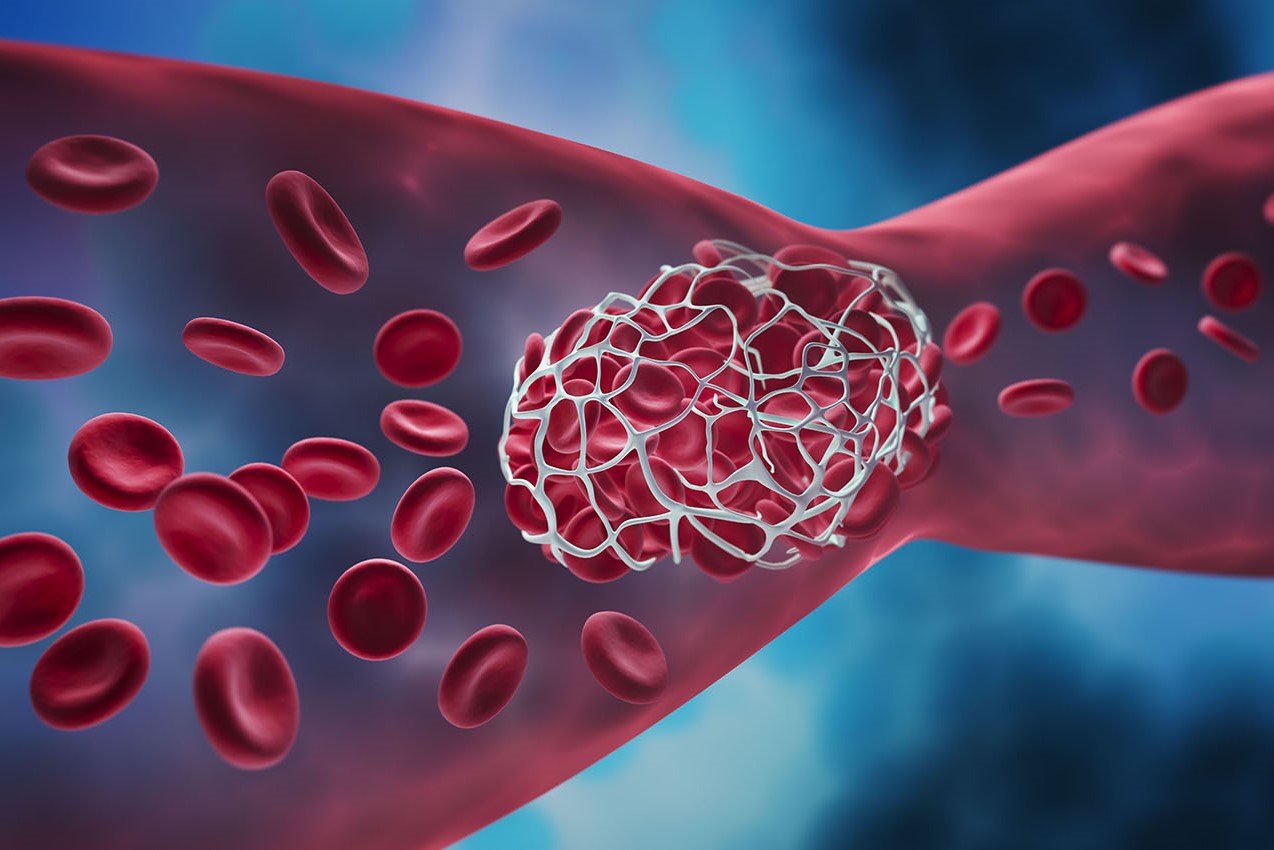
Thrombophilia: causes and treatment of excessive blood clotting tendency
Thrombophilia is defined as a tendency to excessive blood clotting, with a predisposition to develop thromboses and embolisms, both venous and arterial, at a young age (under 45 years)
The different forms of thrombophilia
A distinction is made between acquired forms (severe renal and hepatic insufficiency, use of oral contraceptives, pregnancy, concomitant presence of tumours or diseases of the immune system such as SLE, Sjogren’s, scleroderma) and congenital forms (protein c, protein s, apc resistance, antithrombin III, hyperhomocysteinemia deficiency).
Statistically, the frequency is rare for some forms (antithrombin III: 1/25,000) but very frequent for others (5-7 % of the Italian population is, for example, positive for apc resistance).
In the case of deep vein thrombosis or thrombotic pathology of the arteries occurring under 40 years of age, especially in the presence of a family history (second and third trimester miscarriages, strokes, recurrent and atypical deep vein thrombosis), there is an obligation to extend analyses and diagnostic investigations to thrombophilia.
For most cases, a simple blood test is sufficient, through which the diagnosis is very easy.
In the event of a positive result, this analysis should be extended to first-degree relatives.
Therapy is mainly based on the prevention of thrombotic events with appropriate drugs and aids. In some cases, as in hyperhomocysteinemias, therapy is often decisive and cancels the risk.
Per approfondire:
Emergency Live Even More…Live: Download The New Free App Of Your Newspaper For IOS And Android
What Is Albumin And Why Is The Test Performed To Quantify Blood Albumin Values?
What Is Cholesterol And Why Is It Tested To Quantify The Level Of (Total) Cholesterol In The Blood?
Gestational Diabetes, What It Is And How To Deal With It
What Is Amylase And Why Is The Test Performed To Measure The Amount Of Amylase In The Blood?
Adverse Drug Reactions: What They Are And How To Manage Adverse Effects
Kidney Stones: How They Form And How To Avoid Them
Renal Colic, How Does It Manifest Itself?
Biliary Colic: How To Recognise And Treat It
When The Patient Complains Of Pain In The Right Or Left Hip: Here Are The Related Pathologies
Creatinine, Detection In Blood And Urine Indicates Kidney Function
Leukaemia In Children With Down Syndrome: What You Need To Know
Pediatric White Blood Cell Disorders


